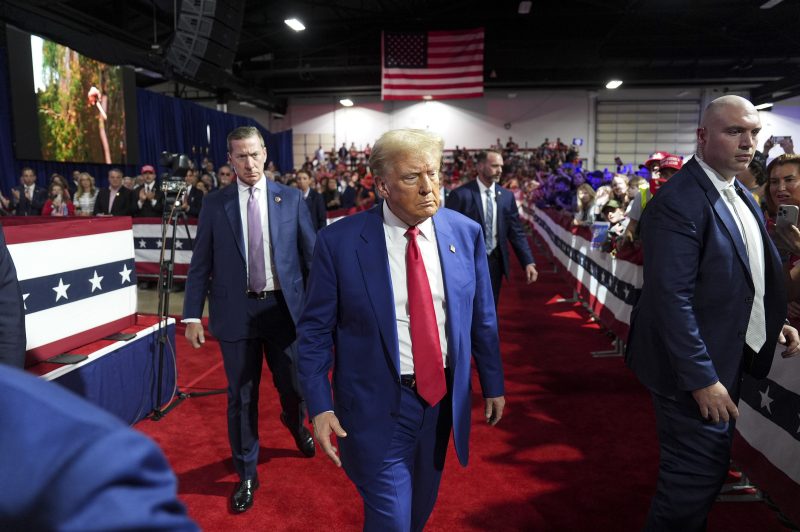In a recent speech, former President Donald Trump faced backlash for comparing the detainees charged in connection to the January 6th Capitol riot to victims of the Japanese internment camps during World War II. This statement drew a sharp rebuke from critics and experts, who condemned the comparison as inappropriate and historically inaccurate.
The Japanese internment camps were a dark chapter in American history that saw thousands of Japanese Americans forcibly removed from their homes and placed in detention facilities during the Second World War. The decision to intern Japanese Americans was based on racial prejudice and fear, rather than any legitimate security concerns. The internment camps had a devastating impact on the lives of those detained, leading to loss of property, livelihoods, and dignity.
Drawing a parallel between the detainees involved in the Capitol riot and the victims of the Japanese internment camps is not only misleading but also minimizes the suffering and injustice experienced by those who were unjustly detained during WWII. The circumstances surrounding the events of January 6th were vastly different from the systemic racism and xenophobia that fueled the internment of Japanese Americans.
Trump’s comparison also sparked outrage among historians and human rights advocates, who emphasized the need for a nuanced understanding of history and a careful consideration of the context in which such atrocities occurred. By equating the actions of the January 6th defendants with the traumatic experiences of Japanese Americans during WWII, Trump not only trivialized the gravity of the Capitol riot but also glossed over the deep-rooted racism and discrimination that defined the internment camps.
Moreover, the comparison made by Trump raises concerns about the normalization of extremist behavior and the erosion of accountability for those who engage in violent and seditious acts. By framing the Capitol rioters as victims akin to those who suffered in the internment camps, Trump perpetuates a dangerous narrative that seeks to absolve individuals of responsibility for their actions and downplay the severity of their crimes.
In conclusion, the comparison drawn by Trump between the January 6th defendants and victims of the Japanese internment camps is not only insensitive but also a distortion of historical facts. It is essential to recognize and address the unique circumstances that led to the internment of Japanese Americans and to acknowledge the lasting impact of such injustices. By trivializing the experiences of those who endured the horrors of the internment camps, Trump’s remarks undermine efforts to promote understanding, reconciliation, and justice in society.
